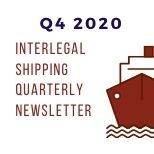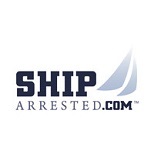The extension of time period for transit passage in Turkish straits
One of the recent developments in Maritime section is most welcome by ship owners whereas the time period for awaiting before passing the Turkish straits such as Bosphorus and Dardanelles has been extended from 48 hrs to 168 hrs (almost 7 days)by an amended rule as a result of resolution approved by Cabinet Council dated 28/7/2017.
According to the new rule all vessels will be granted with the righty of 168 hrs of awaiting period in order to complete necessary requirements to continue her voyage subject to permission given by VTS. Subsequent to permisson of authorities , all the vessels will be considered under transit passage which , legally, save the vessel being arrested or detained due to any claim whatsoever arise from a commercial dispute therefore relieves the ship owners from the risk of contractual breaches and penalties relative to loaded cargo.
Despite the existance of contradictions in legal system between the court authorities with respect to arrest of a vessel which on her transit passage, the new regulation significantly narrow the limits of detention and the acts that prevents or interrupts the voyage while the vessels will be staying along the Turkish straits will not be permitted.
Undoubtfully that, the new regulation provides tremendous benefits to shipowners as the vessels will be under protection against arrest threats also provides satisfying amount of time for bunker , ship chandler even for necessary maintenance and repair of vessel. From another point of view , this new regulation may have poisitive effects on market either for Turkish or foreing flagged vessels owned by local and foreign shipowners considering the minimized risks plus the plenty of time to fix another cargo for carriage which direclty expands the potential of market in Turkey.
To conclude, the new rule much like consists of a favour for shipowners in their trading zone at this time of period which most of them are still suffering from the low-rate incomes. Apperantly, the carried out lobbying activities of shipowners with this respect came to fruition as the former regulation caused troubles practically and loss of time in order to fulfill their contractual responsibilities. On the other hand, it seems the balance of the advantage decreased for those parties as claimants against the shipowners whereas the vessels are the only asset also the guarantee for all kind of their claims.

Dear colleagues, Here is the first Quarterly Shipping newsletter broght to you by Interlegal. Let us present the most valuable cases...

Today, cargo transportation by sea is one of the most profitable and varied methods of cargo delivery. The sea carrier is often not t...
 COVID-19 Worldwide Update2020.04.01
COVID-19 Worldwide Update2020.04.01Brief updates on the current situation and domestic responses to the Covid-19 Pandemic from the global network http://forwarderlaw.com/...

The maritime business has always been subject to high-potential risks and losses deriving from various reasons, beginning with the natu...

Recently, the practice of ship arrest in Romanian ports has become more active. Below, we have tried to concentrate the most frequent topics...

There is no doubt that the main event which will determine Ukrainian legal trends in sea carriage in 2018 is the entry into force of the Law...

Almost all the Azov-Black Sea Region coastal states have been developing such maritime industries as shipbuilding and ship repair....
 Interview for the Project Cargo Weekly2018.02.22
Interview for the Project Cargo Weekly2018.02.22When was Interlegal established in Odessa and what is the main line of legal services that you provide to your clients? Interlegal was es...
 F.A.Q.Shipping in Ukraine2018.01.25
F.A.Q.Shipping in Ukraine2018.01.25Newbuilding contracts Since 1995, shipping has been Interlegal principal activity. Our traditional clients are shipowners, managers, char...

One of the recent developments in Maritime section is most welcome by ship owners whereas the time period for awaiting before passing the Tu...




 Odessa, 65014, Ukraine, 1 а, Gretska St
Odessa, 65014, Ukraine, 1 а, Gretska St
